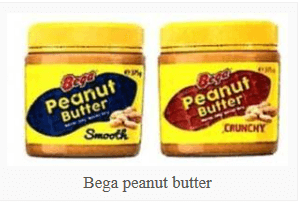Australian Federal Court not impressed with parallel AU/US proceedings
Earlier this year, in a decision¹ made by O’Callaghan J of the Federal Court of Australia, Kraft was restrained from proceeding with arbitration proceedings against Bega in the US. The dispute arose in the context of the sale and promotion of BEGA branded peanut butter produced by Bega, which Kraft alleged was misleading or deceptive due to it’s get-up.
The background to this case was that Kraft had sold its KRAFT brand of peanut butter in Australia for over 50 years and had about 65% of the Australian peanut butter market. However, in 2012 as part of a deal set up in a Master Agreement, Kraft granted Mondelez International Inc. (Mondelez) a licence to use the KRAFT brand and get-up on peanut butter. This licence was due to expire at the end of 2017.
In 2017, Bega acquired certain rights to the KRAFT brand, including the right to sell KRAFT branded peanut butter in Australia using Kraft’s special jar design, or get-up.


However, Kraft served a notice of dispute under the Master Agreement, claiming that Bega had been improperly telling Australian consumers that KRAFT peanut butter had been replaced by BEGA peanut butter, when in fact Bega only had temporary license to use the KRAFT brand. Bega’s advertisements were said to be false, misleading or deceptive.
Bega responded by arguing that it was not a party to the Master Agreement, and as such was not bound by the dispute resolution provisions of the Master Agreement. This response led to Kraft ultimately initiating arbitration proceedings in the US seeking to restrain Bega from violating Kraft’s intellectual property rights and to prevent injury to its well-known KRAFT brand.
In parallel to the US proceedings, Kraft also initiated proceedings against Bega in the Federal Court of Australia alleging breaches of section 18 of the Australian Consumer Law. However, Bega cross claimed and also sought injunctions ordering Kraft not to continue the arbitration proceedings.
Bega contended that the Australian proceedings and the US arbitral proceedings substantially overlapped. Kraft argued that the issues raised in the two proceedings were entirely separate and so could continue in parallel, but O’Callaghan J disagreed. His Honour found that both proceedings would rely on a determination of the questions as to which company owns the jar design and the goodwill it generates. In particular, this was on whether the goodwill at all times emanated from the Master Agreement between Kraft and Mondelez – to which Bega was now also bound as Mondelez’s successor – or whether, as Bega contended, Kraft did not own any of the goodwill in Australia generated by the sale of peanut butter in Australia since at least 2012.
O’Callaghan J noted that the inherent or implied power of a Court to issue anti-suit injunctions derived from its power to protect its own processes and prevent abuses once those processes are set in motion. He said that this was “quite apart” from its power, granted in the exercise of equitable jurisdiction, to grant an injunction to restrain “proceedings in another court, including in a foreign court, which are, according to the principles of equity, vexatious or oppressive”. When the injunction is sought to protect the proceedings or processes of a Court, no question arises as to whether the Australian court is an appropriate forum because “it is the only court with any interest in the matter”.
O’Callaghan J refused to lift an order restraining Kraft from proceeding with the US arbitration proceedings on the basis that it could affect proceedings already on foot between the parties in Australia. This could possibly lead to inconsistent findings between the parallel proceedings. In O’Callaghan J’s view, this was an appropriate case for an anti-arbitration injunction, due to the risk of inconsistent findings about a question central to both proceedings – namely, the ownership of the goodwill in the packaging and get-up/trade dress.
________________________________
¹ Kraft Foods Group Brands LLC v Bega Cheese Ltd. [2018] FCA 549

